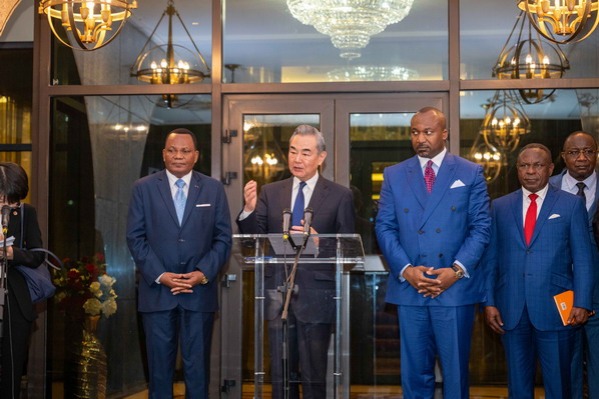UN ambassador: World demands DPRK denuclearization

The latest UN Security Council sanctions against the Democratic People’s Republic of Korea reflect the unanimous position of the international community in opposing Pyongyang’s development of nuclear weapons and ballistic missile capabilities and in maintaining the international nonproliferation regime.
The comments were made by Chinese Deputy Ambassador to the United Nations Wu Haitao on Friday, when the Security Council unanimously approved a resolution authorizing unprecedentedly tough new sanctions in response to the DPRK's Nov 28 intercontinental ballistic missile test.
Wu said China urges the DPRK to take seriously the demands of the international community and refrain from any further nuclear and missile tests.
He reiterated China’s position that the nuclear issue on the Korean Peninsula can only be solved through dialogue and negotiations, and that the UN resolution should be implemented in a full and comprehensive fashion.
"It is imperative to put an immediate end to rhetoric and actions that are detrimental to denuclearization and peace and stability on the peninsula," he said. “The dangerous situation that carries the risk of spiraling out of control is not in the interests of any country.”
The UN Resolution 2397 asks nations to sharply lower limits on the DPRK’s refined oil imports, return home all DPRK overseas workers, and crack down on ships smuggling banned items including coal and oil to and from the country.
UN Secretary-General Antonio Guterres on Friday welcomed the adoption of the resolution. "The secretary-general welcomes the continued unity of the Security Council, which is essential to achieve the goal of denuclearization and create the space for diplomatic initiatives aimed at achieving it in a peaceful manner," the UN chief’s spokesman Stephane Dujarric said in a statement.
In Beijing on Saturday, China’s Foreign Ministry spokesperson Hua Chunying said China hoped all parties could implement the current and other related UN resolutions in a “full and balanced manner”.
While proportionally toughening sanctions against the DPRK, the UN document stresses the importance of maintaining peace and stability in northeast Asia and expresses its commitment to a peaceful, diplomatic and political solution to the situation through dialogue, Hua said.
The resolution also says the restrictive measures should not hurt normal economic activities and cooperation as well as food and humanitarian assistance, she noted.
The resolution reaffirms support for the Six-Party Talks involving the DPRK and the Republic of Korea, China, Japan, Russia and the United States, and calls for their resumption.
The spokesperson said China called for all the parties to actively consider its proposal of a “dual-track approach”, which seeks to advance denuclearization and establish a peace mechanism in parallel, and its "suspension for suspension" initiative, which calls on Pyongyang to pause its missile and nuclear activities, and calls on Washington to put its joint military drills with the ROK on hold.
Shortly after the UN Security’s vote on Friday, US President Donald Trump tweeted, "The United Nations Security Council just voted 15-0 in favor of additional Sanctions on North Korea. The World wants Peace, not Death!"
Also on Friday, France's UN ambassador, Francois Delattre, said: "We believe maximum pressure today is our best lever to a political and diplomatic solution tomorrow ... (and) our best antidote to the risk of war."
Xinhua contributed to this story.

































